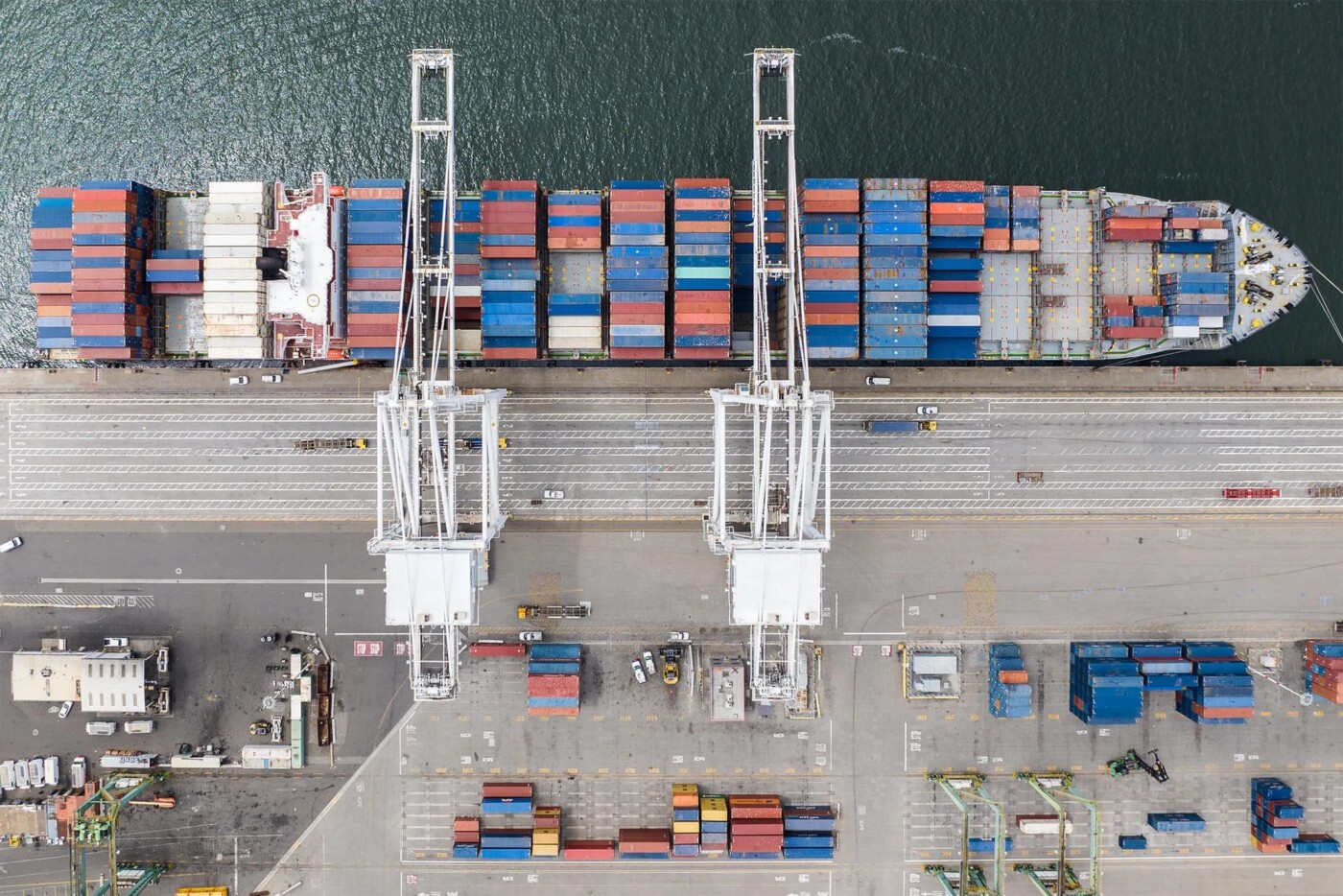The Port of Oakland reported a double-digit drop in shipping volume for April, due largely to President Donald Trump’s chaotic, on-again off-again trade wars, port officials said.
The port handled 185,499 20-foot shipping containers in April, which was a 14.7 percent decrease in overall cargo volume from March.
The slowdown was driven by market volatility and a softening demand for American goods overseas — both spurred by Trump’s “shifts” in trade policy, port officials said in a news release Monday.
“Container volume remained stable during the first four months of 2025; however, uncertainty and high tariff impacted our China volume,” said Port of Oakland Maritime Director Bryan Brandes.
Chinese trade accounts for just 7 percent of the port’s exports, but food and agricultural exports have suffered broad setbacks as buyers remain uncertain about Trump’s intentions.
The president originally imposed a 145 percent tax on Chinese goods and, in retaliation, China imposed a 125 percent tariff on American imports.
Earlier this month, however, both sides agreed to temporary reductions that reset the tariffs to a 30 percent levy on Chinese goods coming into the U.S. and a 10 percent tax on American goods going to China for 90 days.
The reduced tariffs are still higher than they were before Trump began his global trade campaign.
Tariff pause could lead to ‘strong recovery’
Despite the uncertainty, however, Brandes expressed optimism about the port’s ability to maintain healthy volumes in key segments, particularly its refrigerated commodities trade during the spring shipping season.
While Brandes said he expects May’s shipping volumes to be similar those from March, June will likely see “a strong recovery,” due partly to the fact that there is cargo sitting in Chinese warehouses that needs to be moved right away now that the high tariffs have been paused.
Recently, U.S. Rep. Lateefah Simon, D-Oakland, toured the port and held a discussion with stakeholders about how Trump’s trade policies are expected to cause job losses, increased prices for consumers and sagging international commerce, which she called a “devastating economic catastrophe.”
“Tariffs are not always bad, but a tariff war is a disaster for the United States economy and for the global economy.”
Rep. Lateefah Simon
“Tariffs are not always bad, but a tariff war is a disaster for the United States economy and for the global economy,” Simon said. “(President Donald Trump) is giving us a ‘no-win’ situation, where folks literally could lose their jobs.”
Port of Oakland Executive Director Kristi McKenney said the port’s ability to support the local economy and provide good-paying jobs could be harmed by the current international market conditions.
“A tariff-induced downturn in the Port’s cargo volume — whether from import slowdowns or retaliatory export losses — ultimately could jeopardize job stability and our region’s economic health,” McKenney said.
The post Oakland port sees steep decline in shipping amid tariff turmoil; June could bring relief appeared first on Local News Matters.
